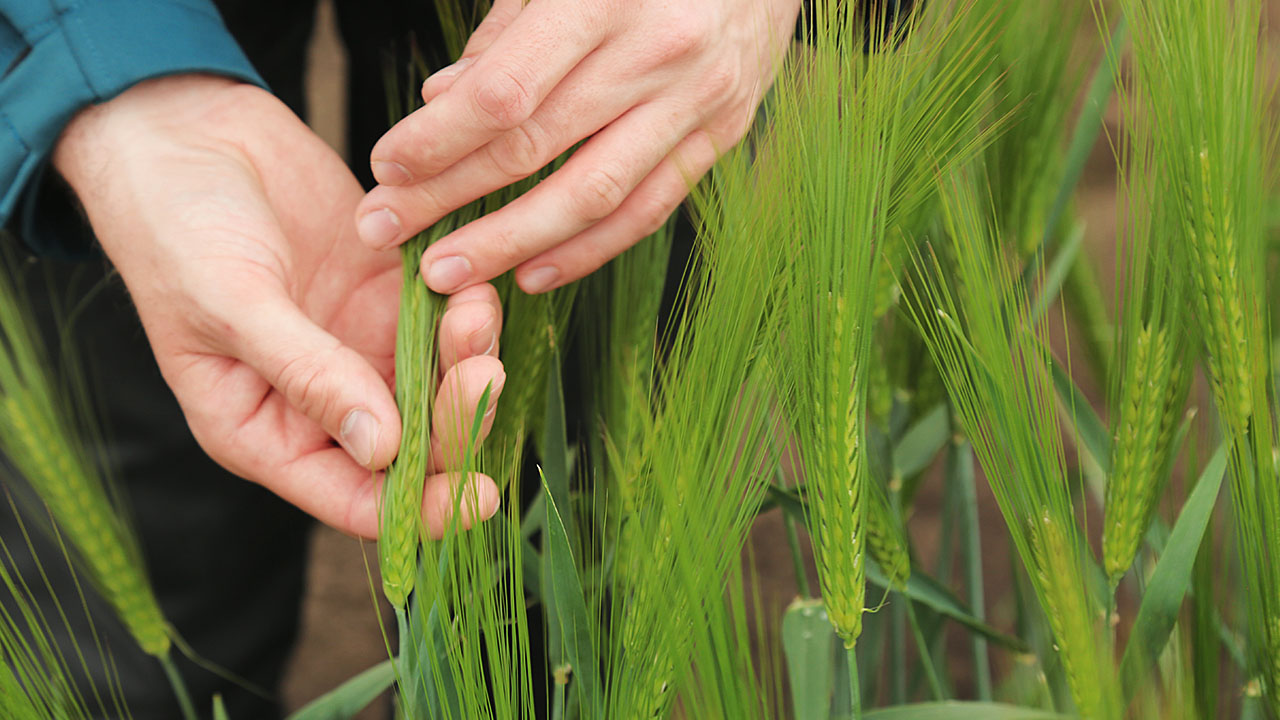BMBF launches research offensive for modern plant breeding
The Federal Ministry of Education and Research (BMBF) wants to massively advance the breeding of climate-adapted and high-performance crops. Funding is being provided for alliances and junior research groups that use the entire spectrum of modern breeding techniques – including genome editing.

The Federal Ministry of Education and Research (BMBF) is investing around 50 million euros in innovative plant breeding research that is open to technology and methods as part of a new funding measure. The aim is to be able to guarantee a reliable, climate-resistant supply of high-quality, healthy and safe food.
In addition to conventional breeding, all new breeding techniques – such as the use of the CRISPR-Cas gene scissors – are explicitly included. The measure entitled "Modern breeding research for climate- and site-adapted crops of tomorrow" is aimed specifically at alliances from science and industry, primarily small and medium-sized enterprises (SMEs). In addition, young researchers can apply for funding. The application deadline is 31 January 2024 (see further information below).
Boost for plant breeding research in Germany
"New breeding techniques are a huge opportunity to breed plants efficiently, purposefully and safely. With our new research funding, we want to advance the breeding of climate-adapted and high-yielding crops. To this end, we are investing 50 million euros over the next four years," said Federal Research Minister Bettina Stark-Watzinger in a BMBF press release.
"We are counting on the EU Commission to amend the completely outdated and scientifically obsolete legal framework. Science's position on this is clear: it supports the EU Commission in this. As the Federal Ministry of Education and Research, we want to take advantage of the opportunities offered by new breeding techniques and not sign off from the future like others." Last week, the Leopoldina and the German Research Foundation (DFG) again took a clear position on the EU Commission's new draft regulation.
The new call for proposals on plant breeding research
The new BMBF funding measure is entitled "Modern breeding research for climate- and site-adapted crops of tomorrow". Project outlines can be submitted until 31.01.2024.
Click here for the new call for proposals on the BMBF website.
Climate-adapted and high-performing crops
The focus of the funding guideline "Modern breeding research for climate- and site-adapted crops of tomorrow" is on breeding crop varieties that can withstand the biotic and abiotic consequences of climate change and at the same time ensure stable yields and thus guarantee the supply of high-quality, healthy and safe food in the future. Within the framework of research funding for innovative plant breeding research that is open to technology and methods, both conventional procedures and new breeding methods are to be used for the development of resilient and high-performance crops.
In addition to climate and site adaptation, further goals are the production of innovative crops whose development times are significantly shortened and which contribute to maintaining land productivity in an environmentally friendly and resource-conserving manner. The aim is to preserve, make extensive use of and significantly expand the existing genetic resources, both through a broad spectrum of varieties and through new crop types, including previously little-used special and niche crops.
Funding is provided under three funding modules A, B and C.
- In Module A, research projects on the main crops cereals (barley, maize, rye, wheat), potato, rape and sugar beet are funded.
- Module B funds research projects on special and niche crops such as cereals (spelt, oats, millet, rice), buckwheat, sunflower, tomato, wine, yams and others.
- Module C is aimed at junior research groups associated with consortia from modules A and B.
Modules A and B are designed for two consecutive funding phases of four years each. For module C, there is a single funding phase of four years.
The BMBF has commissioned the project management organisation Jülich with the procedure. Project outlines must be submitted by 31 January 2024. Contact persons are Dr. Rainer Büschgens and Dr. Christian Pfaff.
pg


